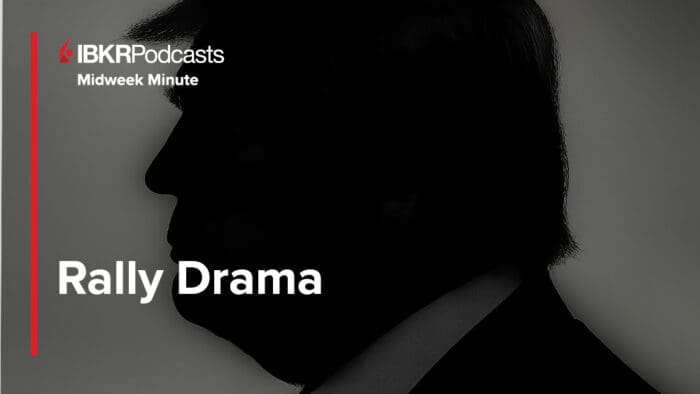There are two styles of options, European and American. The difference between the two is that European style options cannot be exercised early while American style options can. In this lesson, we will go over the exercise and assignment process and possible reasons why an investor may exercise an option early and the risks associated with getting assigned early.
What is option exercise and assignment?
The holder of the option has the right to exercise or convert the option into the underlying. For an equity call option, the holder will receive 100 shares of the stock at the strike price if they exercise and the holder of a put option will sell 100 shares of stock at the strike price if they exercise. Conversely the seller of the call option will have to sell 100 shares of stock at the strike price if they are assigned and the seller of the put option must buy the stock at the strike price if they are assigned.
For example, ABC stock is trading at $100 at expiration. An investor who bought an ABC 90 call can exercise the call and pay $90 for ABC stock even though it is trading at $100. An investor who sold an ABC 90 call will be assigned and must sell 100 shares at $90.
Remember, the holder or buyer of the option has all the rights, and the seller or writer has all the obligations. If ABC stock is trading at $100 at expiration an investor who bought an ABC 90 put would let it lapse or not exercise since they would end up selling 100 shares of ABC at $90 when they could sell the 100 shares at $100 in the market.
What is automatic exercise?
Options that are in-the-money at expiration will be automatically exercised, this is also known as exercise by exception, unless specifically instructed by the holder not to do so. This procedure will automatically exercise in-the-money options to protect the holder from losing the intrinsic value of the option. The Option Clearing Corporation, OCC, uses a $0.01 threshold but it is possible that the investor’s clearing and/or brokerage firm may use a different value, so it is important that the investor checks with them.
How does the exercise & assignment process work?
For exchange traded options in the U.S. the OCC plays an important role in the exercise and assignment process. They are the intermediary between buyers and sellers, and they issue and guarantee all option contracts. When an option is exercised, the option holders trading or brokerage firm notifies their clearing firm, and the clearing firm notifies the OCC. The OCC then notifies the writer’s clearing firm, which notifies the seller’s trading or brokerage firm and then the seller is assigned the appropriate contra underlying position to the holder.
The assignment process is random, so the buyer and seller involved with the original option transaction usually don’t exchange the underlying if the option is exercised but will transact with another investor instead via the OCC.
What is pin risk?
Pin risk applies to sellers of options when the underlying closes at its strike price on expiration. Going back to our ABC stock example, in this scenario the investor sold 10 ABC 90 calls and ABC stock closed at $90 on expiration. The investor does not know whether they will be assigned all 10 calls, zero calls, or some number in between and must guess on the number of shares that they may be short after expiration. Pin risk makes it extremely hard for the investor to hedge their option position and they will know how many shares of the underlying they are long or short until they are notified of the amount of shares they are assigned.
What is an early option exercise and why would an investor exercise an option early?
As discussed earlier in this lesson there are two types of options: American style and European style, the ability to exercise early only applies to American style options. An investor may want to exercise an option early for a few reasons. For calls, the underlying may be going ex-dividend, and the investor wants to convert the option to the underlying to receive payment or the stock may become hard to borrow and the investor may want to cover a short position to avoid paying high borrow fees. An investor may exercise puts to take advantage of interest rates.
How does an investor exercise an option early?
Brokers will have daily cut-off times to submit early exercises so an investor should contact their broker for the proper procedure.
Early assignment risk
An investor who has short options may find themselves unexpectedly assigned prior to expiration. This is one of the risks that investors who sell options face. The investor should pay attention to upcoming corporate actions, borrowing fees, and interest rates as part of their risk management strategy and be aware of the potential to be assigned early on their short-option positions.












I had bought put options that were assigned at expiration. Why was this assigned when I did not exercise? How to prevent this, other than closing my position early? I was always under the impression that when you buy an option you don’t have an obligation!!! Very upset with your auto assignment
Hello Sivaram, thank you for reaching out. For a time-sensitive trading issue, please contact Client Services via phone: http://spr.ly/IBKR_ClientServicesCampus
Hi. Automatic exercise means that the value of my options get turned into the same amount of cash or you exercise on my behalf and receive the underlying stock or index? And if the second do you have to maintain some level of cash to be able to trigger the exercise? What happens if you don’t hold any cash? Thank you.
Hello James, thank you for reaching out. You may use the FYI Automatic Actions tool to automatically exercise US dividend-related stock and ETF options. Once configured, IBKR’s system will determine whether an early exercise of call options may be beneficial. The system will send a notification two days before the stock trades ex-dividend and if the determination remains favorable, automatically exercise the option early. Please review this FAQ for instructions to configure the tool: https://www.interactivebrokers.com/faq?id=27284073
Please review this FAQ for more information about if you are unable to meet the margin requirement on a stock delivery resulting from an option exercise or assignment: https://www.interactivebrokers.com/faq?id=37138025
We hope this helps answer your question.